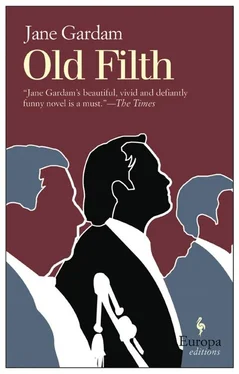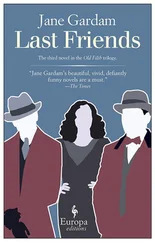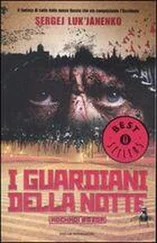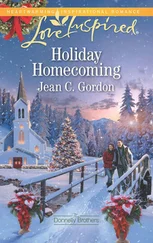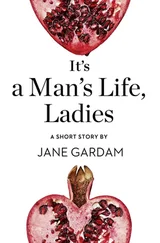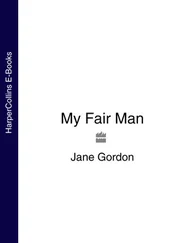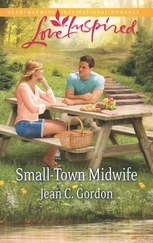“M-m-m?”
“On the car. It is very much the fashionable touch, invented I am surprised to say by a lady. The first driving mirrors were adapted from the powder-case in a lady’s handbag. They were hand-held. So that you could see if anything was coming along behind. One day, they’ll be compulsory for both sexes I dare say. I see you are unaware of powder-cases? Perhaps you know no ladies? Have you a mother?”
“She died when I was b-b-b—”
“Several boys in my Outfit have suffered similarly. We are almost all of the Raj. I try not to see any of the mothers.”
The car was re-cranked and off they went again. In the dickie it grew very cold about the ears. Eddie crouched down a bit but was afraid to take himself out of range of the mysterious powder-case mirror. Sir stopped in a wooded valley and passed Eddie a bottle of lemonade, taking a swig himself from a flask with a silver top and wrapped in basket work. Eddie smelled something powerful and sweet. It reminded him of the silver box which his father had given him and which he had given to Ada.
“Not long, now,” said Sir. “We are on the borders of what is known as the English Lake District. It is the Old Kingdom of Cumbria and where I chose to set up my Outfit. I dare say you have not heard of our purple mountains and silver rivers?”
“I c-can’t remember. Sir.”
“Never fell to the Romans. Home of the poet Wordsworth who had a happy education.”
“Y-yes, Sir.”
“You know all this, I dare say?”
“I did — didn’t—”
“Can you read, Feathers?” Sir asked casually.
“N-n-not yet m-much.”
“Never mind. Won’t take two ticks. Great times ahead. Now, here we are.”
A high and very ugly brown stone castle towered out of a mountain forest beside a black lake, and as they turned and began to climb up a drive edged with blue hydrangeas a bell rang ahead of them and various boys began to emerge from the undergrowth looking eager and wild. Sir gave a salvo on the bulb and the boys began to jog up the drive, beside the car, some of them cheering.
“Supper time,” said Sir. “Sausages, with any luck. We’ve a good cook. You like sausages, I dare say?”
An elfin child burst out of the front door and flung himself in front of the car, arms spread.
“One day I’ll turn you into a single dimension. A pancake. A pulp for a pie,” said Sir.
“Can I put the car in the garage for you, Sir?” said the alert-looking boy.
“Of course, of course. Rub it down, will you, and give it a drink?”
The boy took the driver’s seat and, though his head was not far above the instruments panel, steered slowly and carefully into the garage where it fitted like a toy in a box.
“Very accurate boy,” said Sir. “Name of Ingoldby. He’s in charge of you for your first half-term. Very well done, Ingoldby. A garage to contend with.”
“It’s not so much a garage,” said Ingoldby, “as a kennel for a medium-sized dog. Hullo.”
“Ingoldby — Feathers,” introduced Sir, shaping the future.
Seventy years on in Dorset, an extraordinarily warm November, Teddy Feathers, Sir Edward, Old Filth was fussing about which tie to wear for a trip to London. He and Betty were going to the solicitors to make their Wills.
Downstairs in the hall Betty, perfectly ready, sat waiting on a sort of throne of gilded wood and faded, shredding silk which had been scarlet when they bought it in Bangladesh. She had found it in a cavernous incense-smelling shop in the backstreets of Dacca’s Old Town. Stroking the pale rose satin now with her fingertips, she tried to remember what it was that had made her buy this chair. A bit of showing off, she thought. Well, some people brought back stuffed animals. She had asked if she might try sitting in it. It had been right at the back of the shop and she had looked out from it down the blackness to the dazzle of the doorway and the passing show of the street, the tangle of the rickshaws, the dignified old gentlemen in turbans, the women like briskly floating butterflies, the clusters of black heads in all the high windows. A procession of princelings had gone by, each carrying a silver dish piled with steaming plum pudding. Well of course she knew that it was only tin-foil and cow dung. But they were jolly and grave at the same time, like the Magi.
“Yes, I’ll take it. I’ll take the chair.”
And here it was now, standing on the Dorset parquet beside the teak chest, and her fingernails, rosy as the silk, were stroking it.
On the teak chest were net bags full of tulip bulbs waiting to be planted. Today would have been the perfect day for it. Tomorrow might be cold or wet and she would be feeling a bit done-in after this jaunt today. Why Filth still had to have a London solicitor she did not know. Twice the price and half the efficiency, in her experience. The very thought of London made her dizzy. No point in telling Filth. No arguing with Filth.
And the bulbs should have been in two weeks ago for she wasn’t the walking talking calendar she used to be. She didn’t like dropping to her knees very much, at any time. She’d even stopped in church, though it felt louche, just squatting. The Queen Mother still knelt in church. Well, probably. Filth said that Queen Mary had knelt until the very end.
Filth still kept to a timetable. He’d booked this appointment weeks ago. 3.30 p.m. Bantry Street, W.C.1. The Wills would now be ready for signing. He’d been urgent about it lately and she wondered if he’d been having the dizzies again. His slight heart attack was several years ago. She stroked the satin.
Then her fingers strayed to the bulbs in their bags and she touched them — like a priestess giving a blessing. The fat globes inside the nets made her think of the crops of shot game-birds laid out on a slab — somewhere in her childhood’s China, maybe? And, as a matter of fact, thought Betty, stroking, these fat potential globes under their skins were very like a man’s balls, when you came to think about it.
Not that I have, for years.
She heard Filth above stairs drop a shoe and swear.
But if I seriously think about it, as an artist might, or a doctor, or a lover dreaming. .
She closed her eyes and under the pile of bulb bags the telephone began to ring. She felt about until she reached the receiver, pulled it free and said, “Yes? Betty.” She said again, “Yes? Hello? Betty,” knowing that it would be someone from her reading group, which was meeting in the village that afternoon, and which she had notified yesterday that she would be away. The writer they were studying (studying!) was driving all the way from Islington to interpret her novel for them. Betty thought that she ought to have better things to do. It must be like discussing your marriage with strangers. “Hello? Is that you, Chloe?”
“Betty?” (A man.)
“Yes?”
“I’m in Orange Tree Road. Where are you?”
“Well, here.”
“Exactly where?”
“Sitting in the hall. By the phone. On the satin throne.”
“What are you wearing?”
“Wearing?”
“I need to see you.”
“But you’re in Hong Kong.”
“I need to see you. To see your face. I’ve lost it. I have to be able to see you in the chair.”
“Well, I’m — we’re about to go up to London. Filth’s putting his shoes on upstairs. He’ll be down in a minute. I’m dressed for London.”
“Are you wearing the amethysts?”
“Don’t be ridiculous. It’s nine o’clock in the morning.”
“Pearls.”
“Oh, well, yes.”
“Touch them. Are they warm? Are they mine? Or his? Would he know?”
“Yours. No, he wouldn’t notice. Are you drunk? It must be after dinner.”
Читать дальше
